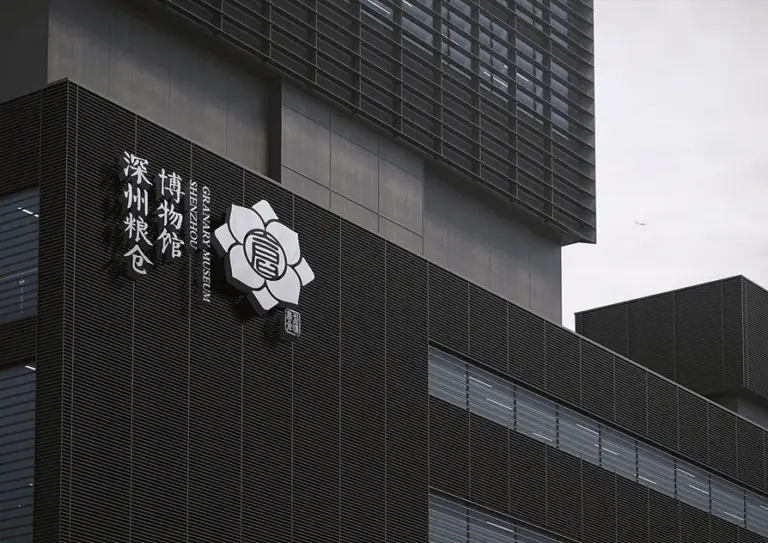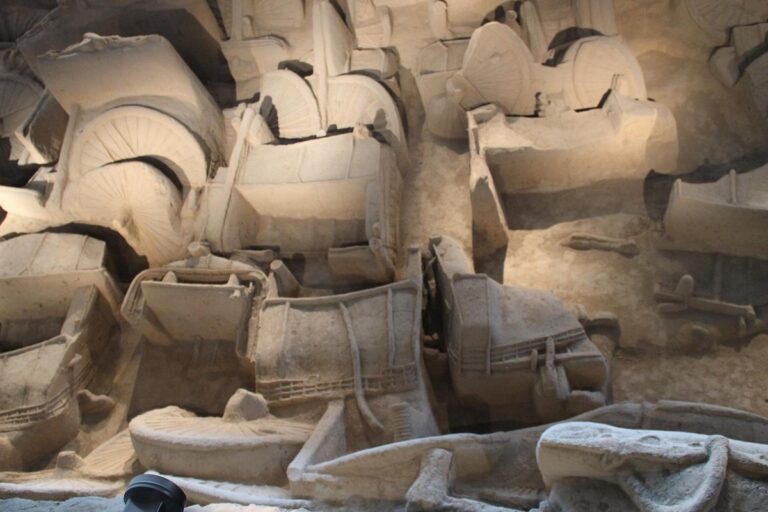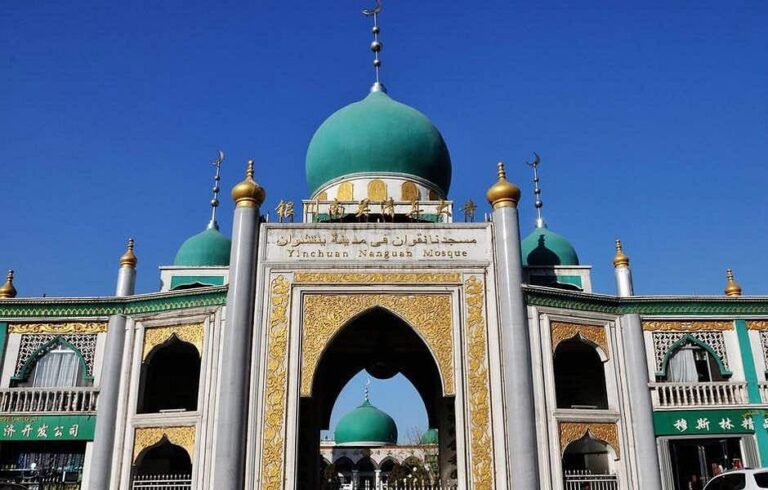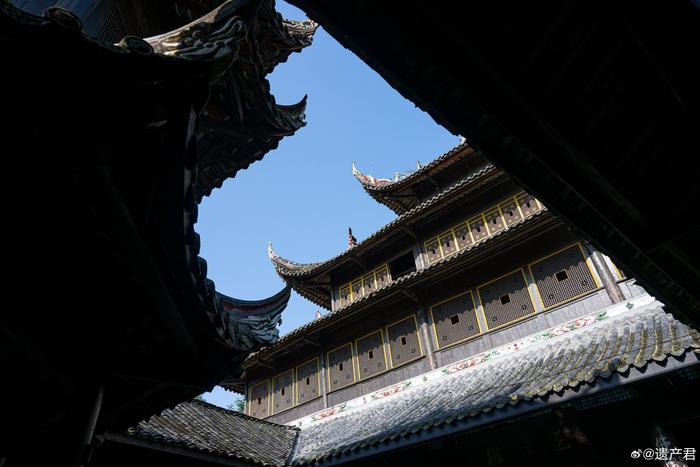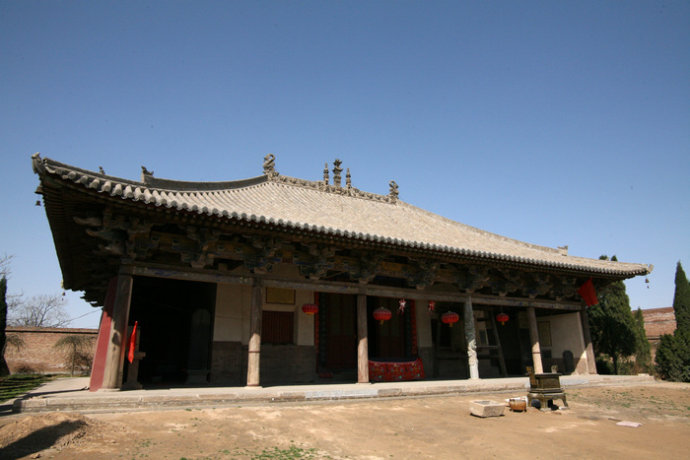Discover the Rich Heritage of Tianjin Hebei Juewushe Jiuzhi: A Traveler’s Paradise
An Essential Guide to Visiting Tianjin Hebei Juewushe Jiuzhi
In This Guide
- An Essential Guide to Visiting Tianjin Hebei Juewushe Jiuzhi
- The Rich History of Tianjin Hebei Juewushe Jiuzhi
- Main Highlights: What to See at Tianjin Hebei Juewushe Jiuzhi
- Planning Your Visit: A Practical Guide
- Tickets, Hours, and Booking
- How to Get There
- Local Cuisine and Accommodation
- Frequently Asked Questions
- Final Thoughts on Your Trip
Tianjin, a city steeped in history and cultural significance, is home to a remarkable landmark known as the Juewushe Jiuzhi (觉悟社旧址). This site, also referred to as the Juewushe Memorial Museum, is not merely a museum; it is a testament to the youthful spirit of revolution and reform that swept through China during the early 20th century. Established in the aftermath of the May Fourth Movement, the Juewushe was a progressive youth organization formed by students in Tianjin, including notable figures such as Zhou Enlai and Deng Yingchao.
Nestled in the Hebei District, the site comprises a modest compound of traditional brick houses that once served as the meeting place for passionate discussions and revolutionary activities. The Juewushe played a pivotal role in galvanizing young minds against imperialist ideologies and traditional feudal values, making it a cornerstone of the early Chinese Communist movement. Today, the preserved site offers visitors a glimpse into the fervent intellectual debates and grassroots activism that characterized this dynamic period in Chinese history.
As you step into the Juewushe Jiuzhi, you will find yourself transported back in time, exploring exhibits that showcase the tools, literature, and artifacts of the organization’s members. The museum not only honors the legacy of its founders but also serves as a reminder of the enduring power of youthful idealism and the impact of collective action in shaping the future. Whether you are a history enthusiast or simply curious about China’s revolutionary past, a visit to this significant site promises to be both enlightening and inspiring.
The Rich History of Tianjin Hebei Juewushe Jiuzhi
The Tianjin Hebei Juewushe Jiuzhi, or the Former Site of the Awakening Society, holds a significant place in China’s revolutionary history, particularly during the influential May Fourth Movement of 1919. Established by a group of progressive youth, including prominent figures such as Zhou Enlai and Deng Yingchao, the Awakening Society emerged as a beacon of patriotism and social reform in Tianjin. This organization was formed by members of the Tianjin Student Union and the Women’s Patriotic Society, reflecting the determination of young intellectuals to challenge the status quo and advocate for national rejuvenation.
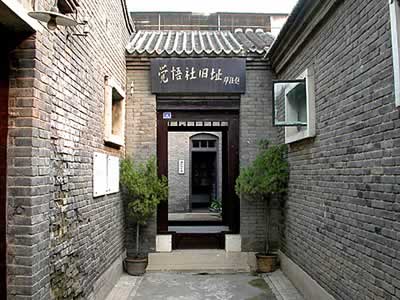
Tianjin Hebei Juewushe Jiuzhi.
The society’s core principles—innovation, self-awareness, and self-determination—guided its activities, which included organizing discussions on social issues, publishing literature, and engaging in revolutionary practices aimed at dismantling feudal ideologies. It was during a visit in September 1919 that Li Dazhao, a key figure in the early communist movement, praised the society’s efforts to unite young men and women in their fight against imperialism and traditional values. He recognized it as a groundbreaking initiative in Chinese history, emphasizing its role as a leader in the patriotic movement in Tianjin.
Despite its brief existence from September 1919 to November 1920, the Awakening Society left a lasting impact on the fabric of modern Chinese history. Over its short lifespan, many of its members went on to join the Chinese Communist Party and the Socialist Youth League, including Zhou Enlai and Deng Yingchao, who would later become pivotal leaders in the People’s Republic of China.
Today, the site of the Awakening Society has been transformed into a memorial museum, recognized as a national key cultural relic protection unit. The museum showcases a collection of artifacts, documents, and photographs that vividly illustrate the society’s activities and contributions. Visitors can explore restored displays that recreate the historical environment of the society, alongside supplementary exhibitions that highlight its revolutionary journey.
The legacy of the Awakening Society is not only a testament to the fervor of youth during a transformative period in China’s history but also an enduring symbol of the power of collective action and ideological commitment in the pursuit of social justice and national integrity.
Main Highlights: What to See at Tianjin Hebei Juewushe Jiuzhi
The Tianjin Hebei Juewushe Jiuzhi, or the Juewushe Memorial Museum, is a significant historical site that offers a glimpse into the revolutionary spirit of early 20th century China. Here are the key highlights that make this site a must-visit:
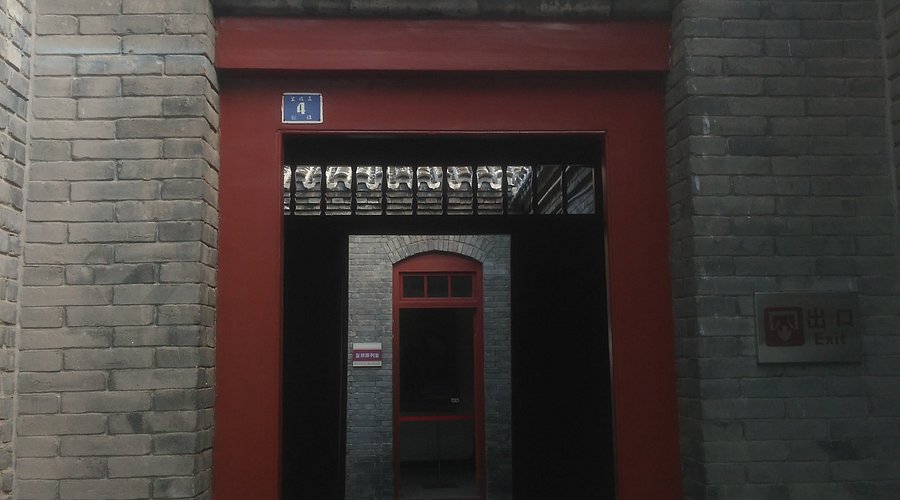
Tianjin Hebei Juewushe Jiuzhi.
-
Historical Significance: Founded during the May Fourth Movement, Juewushe was a progressive youth organization established by influential figures such as Zhou Enlai and Deng Yingchao. It played a crucial role in mobilizing students and intellectuals against imperialism and feudalism, laying the groundwork for the Chinese Communist Party.
-
Architectural Charm: The museum is housed in a charming compound of seven traditional brick houses, preserving the architectural style of the era. Visitors can admire the quaint structures that provided a backdrop for the revolutionary activities of the past.
-
Engaging Exhibits: Inside the museum, the displays are divided into two main sections: restored exhibits that recreate the historical atmosphere of the original Juewushe and supplementary displays featuring historical documents, photographs, and artifacts. These exhibits vividly narrate the stories of the organization and its members.
-
Notable Figures: The museum highlights the contributions of prominent members like Zhou Enlai, Deng Yingchao, and others who later became key leaders in the Communist Party and the Chinese government. Their stories are intertwined with the broader narrative of China’s modern history.
-
Cultural Reflections: The museum serves as a space for reflection on the themes of reform, self-awareness, and collective action that defined the spirit of the Juewushe. Visitors are encouraged to contemplate the impact of youth movements in shaping national identity and social change.
-
Accessibility: Conveniently located in the Hebei District of Tianjin, the museum is easily accessible by public transport, making it a great addition to any itinerary exploring the city’s rich historical tapestry.
-
Free Admission: The museum offers free entry, allowing everyone to engage with this important chapter of Chinese history without any financial barrier.
A visit to Tianjin Hebei Juewushe Jiuzhi is not just an educational experience; it is a journey into the heart of youthful idealism and revolutionary fervor that continues to inspire generations.
Planning Your Visit: A Practical Guide
Practical Guide to Visiting Tianjin Hebei Juewushe Jiuzhi (觉悟社旧址)
If you’re planning a visit to the Tianjin Hebei Juewushe Jiuzhi, also known as the Juewushe Memorial Museum, here is everything you need to know to make your experience enjoyable and insightful.
Location and Access
The Juewushe site is located at No. 4, Sanjie Li, Zhouwei Road, Hebei District, Tianjin. This historical place is easily accessible via various public transport options:
- Bus Routes: You can take several bus lines, including:
- 632: Get off at Rifanli Station, which is a short walk from the site.
- 34, 516, 607, 611, 659, 802, 863, 869, 878, 904: Alight at Hebei Sanma Road Station and walk approximately 480 meters.
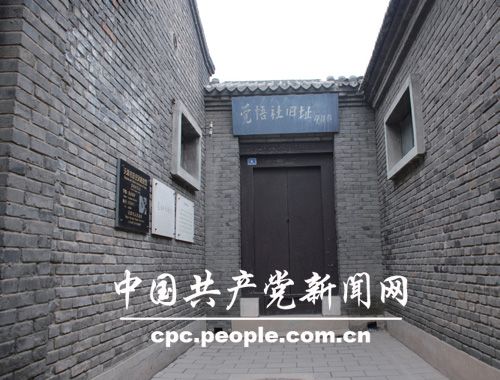
Tianjin Hebei Juewushe Jiuzhi.
Opening Hours and Admission
The memorial museum is open to visitors daily from 9:00 AM to 4:30 PM. Admission is free, making it an accessible cultural experience for everyone.
What to Expect
The Juewushe Memorial Museum is dedicated to the Juewushe society, a revolutionary organization formed during the May Fourth Movement, which included prominent figures like Zhou Enlai and Deng Yingchao. The museum features two main exhibition areas:
- Restored Exhibits: This area showcases the historical setting of the original Juewushe, featuring tools used by members and valuable documents from that era.
- Supplementary Exhibits: Here, you’ll find a wealth of historical materials, including photographs, paintings, sculptures, and models that illustrate the society’s significant role in early 20th-century China.
Tips for Your Visit
- Plan Your Visit: Since the museum is free, it can attract a good number of visitors, especially on weekends or holidays. Try to visit during weekdays for a quieter experience.
- Dress Comfortably: Expect to spend some time walking and standing while exploring the exhibits, so wear comfortable shoes and clothing.
- Photography: Check the museum’s policy on photography, as some areas may have restrictions.
- Guided Tours: Look for guided tours or informational brochures to enhance your understanding of the exhibits and the historical context of the Juewushe.
- Stay Updated: Occasionally, the museum may close certain sections for maintenance or special exhibitions. It’s advisable to check their official announcements or website if you’re planning a specific visit.
Nearby Attractions
While in the Hebei District, consider exploring other nearby sites to enrich your visit:
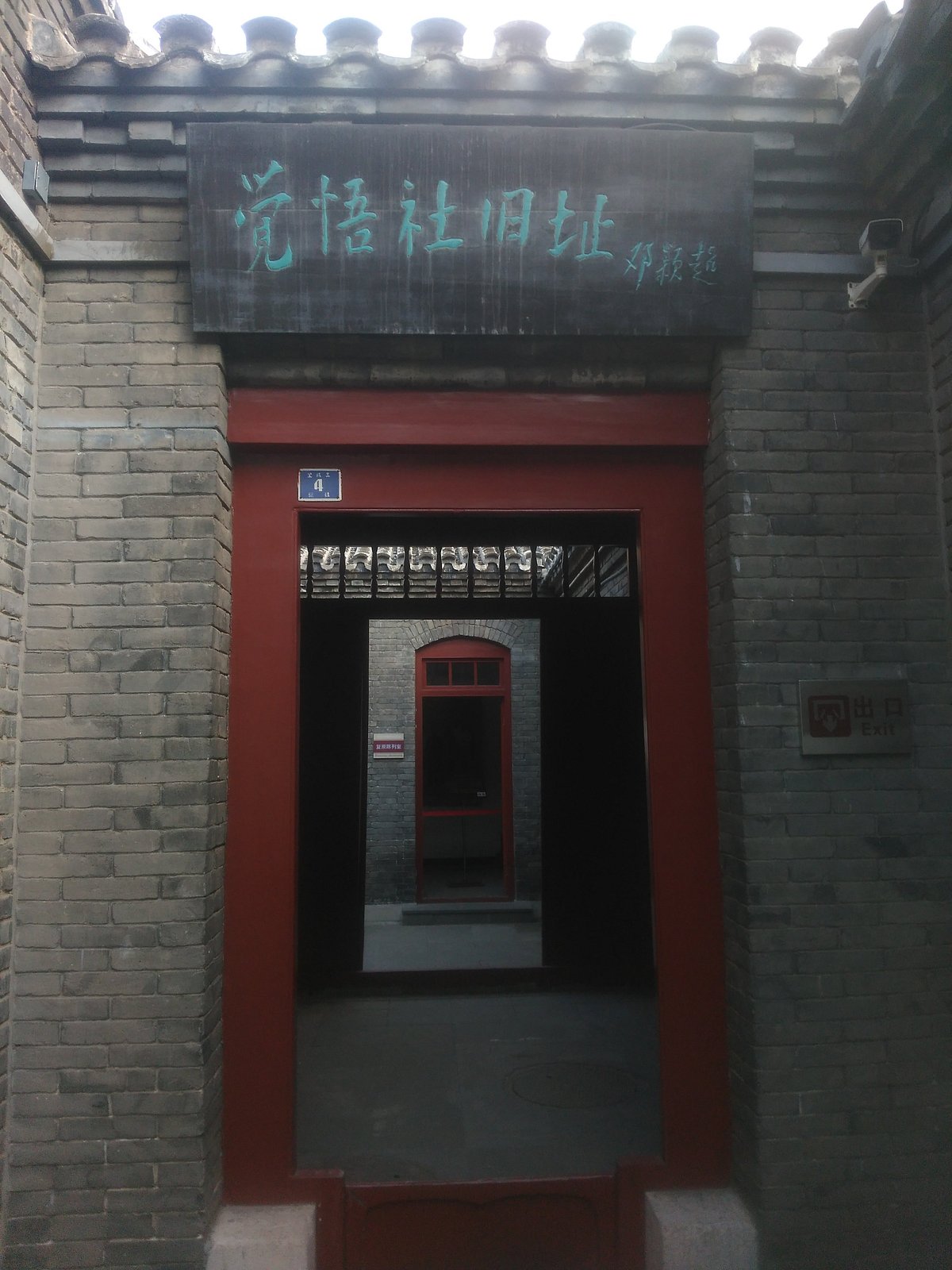
Tianjin Hebei Juewushe Jiuzhi.
- Red Flag Theatre: For a dose of local culture and entertainment.
- Minyuan Xiangsheng Teahouse: Experience traditional Chinese comedy and tea culture.
- Tianjin Bay Park: A lovely place for a stroll, offering scenic views of the river.
Final Thoughts
Visiting the Tianjin Hebei Juewushe Jiuzhi is not just about exploring a historical site; it’s an opportunity to connect with China’s revolutionary past and understand the ideals that shaped modern Chinese society. Whether you’re a history enthusiast or a casual traveler, this memorial museum is a must-visit when in Tianjin. Enjoy your journey through history!
Tickets, Hours, and Booking
Visiting Tianjin Hebei Juewushe Jiuzhi (觉悟社旧址) is an enriching experience that offers a glimpse into China’s revolutionary past. The venue is currently designated as a key cultural heritage site, reflecting its historical significance.
Admission Details:
– Entry Fee: Admission to the Tianjin Juewushe Memorial Museum is free for all visitors.
– Opening Hours: The museum welcomes guests from 9:00 AM to 4:30 PM daily. It’s advisable to arrive with ample time to explore the various exhibits and displays.
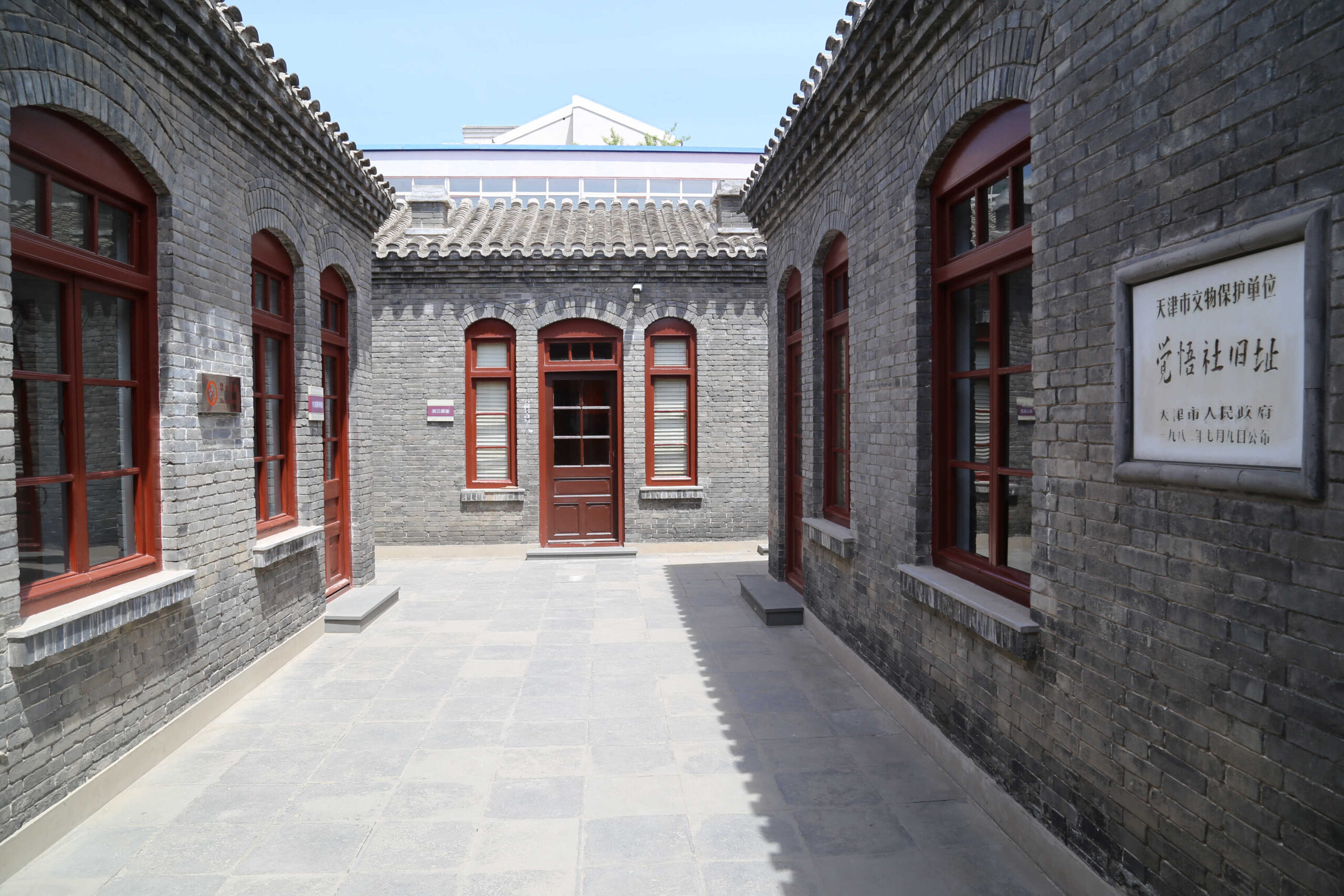
Tianjin Hebei Juewushe Jiuzhi.
Location:
The memorial is situated at 49 Sanjieli, between Zhouwai Road and Youwei Road, in the Hebei District of Tianjin. Accessibility is straightforward, with multiple public transportation options available nearby.
Public Transport:
– Bus Routes: The following bus lines serve the area:
– 632: Alight at Rifangli.
– 34, 607, 802, 863, 869, 878: Get off at Hebei Sanmalu and walk approximately 480 meters to the museum.
Visitor Information:
– Guided Tours: While the museum does not charge an entrance fee, guided tours may be available for a nominal fee to enhance your understanding of the exhibits.
– Special Events: Keep an eye on announcements for any special exhibitions or events that may occur during your visit.
Tips:
– Given the museum’s rich history, it’s recommended to allocate at least a couple of hours for your visit to fully appreciate the displays and the context they provide regarding the Juewushe and its role in the May Fourth Movement and beyond.
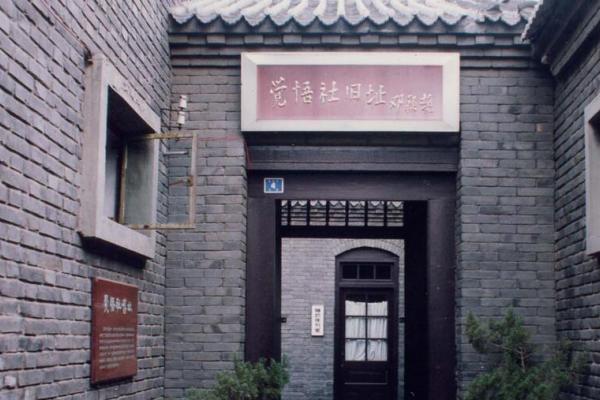
Tianjin Hebei Juewushe Jiuzhi.
Plan your visit accordingly to ensure a fulfilling experience at this important historical site!
How to Get There
Getting to Tianjin Hebei Juewushe Jiuzhi (觉悟社旧址) is straightforward, thanks to the city’s efficient public transportation network. Here’s how to navigate your way to this historic site, located in the Hebei District of Tianjin.
Public Transportation Options
Bus Services
Several bus routes service the area around the Juewushe Jiuzhi, making it accessible from various parts of Tianjin. Here are the most convenient options:
- Direct Access: Take bus 632 and disembark at the Rifangli stop, which is just a short stroll away from the site.
- Alternative Routes: You can also opt for buses 4, 34, 516, 607, 611, 611 Express, 659, 802, 863, 869, 878, or 904. Get off at the Hebei Sanmalu stop and walk approximately 480 meters to reach the Juewushe Jiuzhi.
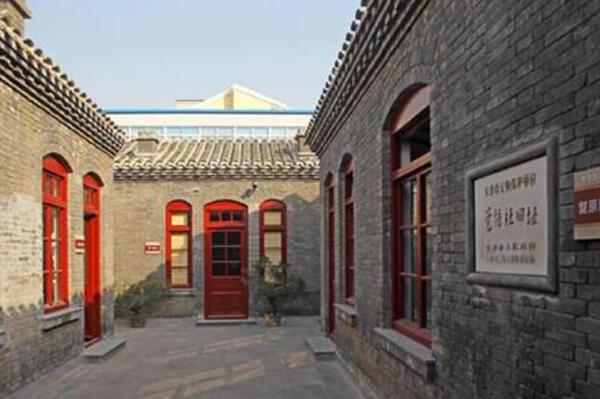
Tianjin Hebei Juewushe Jiuzhi.
Metro Services
Currently, there is no direct metro line to Juewushe Jiuzhi, but Tianjin’s metro system is expanding rapidly. Future developments may include closer access, so keep an eye on updates if you’re planning a visit.
Taxis and Rideshare
For those who prefer a more direct route, taxis are readily available throughout Tianjin. Simply give the driver the address: 49 Sanjie Li, Hebei District, Tianjin. Rideshare services like Didi are also an option for a convenient and personalized travel experience.
Accessibility
The surrounding area is pedestrian-friendly, making it easy to explore on foot once you arrive. Be prepared for a brief walk from your bus stop, which allows you to soak in the local atmosphere of Tianjin’s Hebei District along the way.
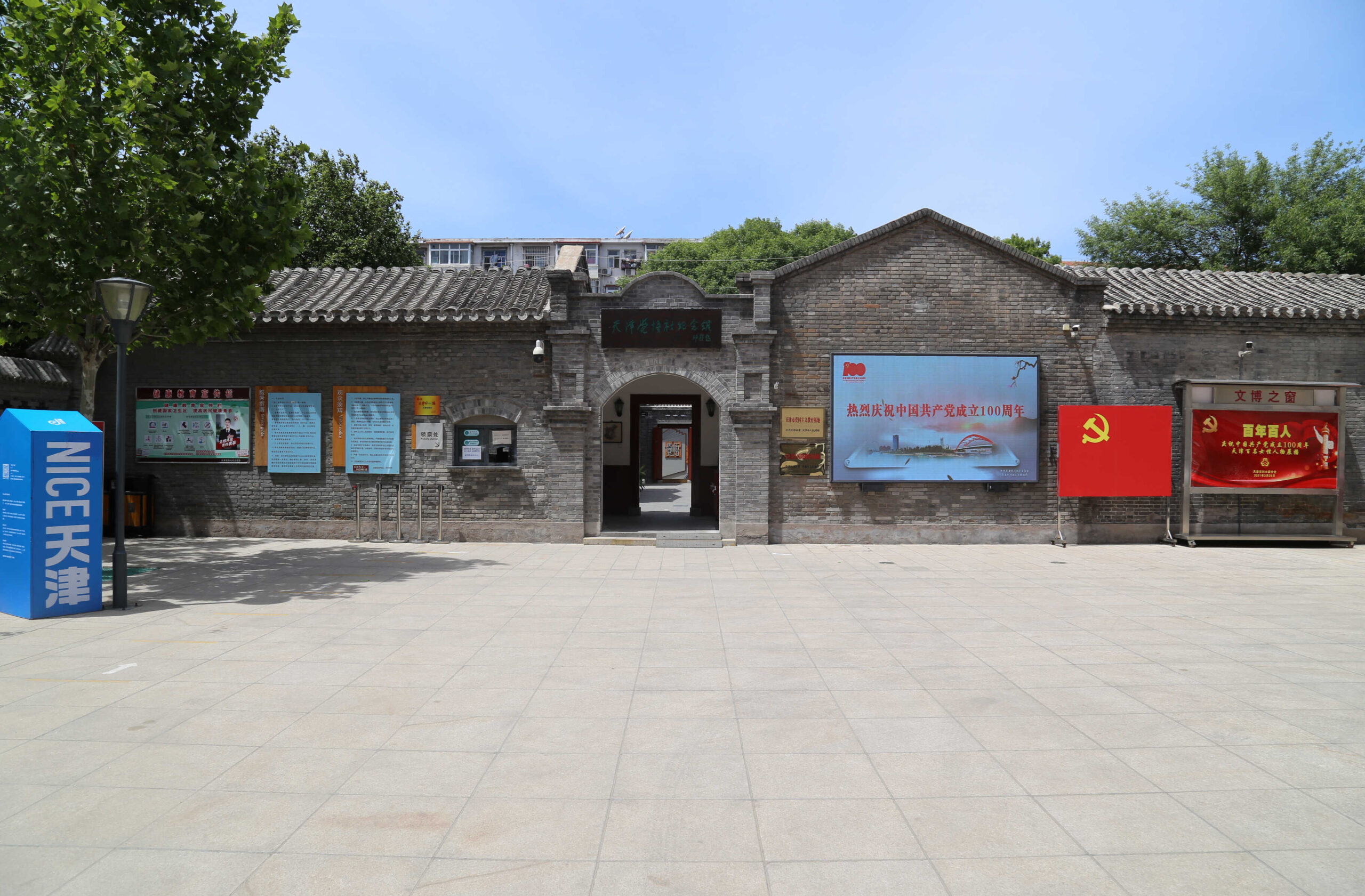
Tianjin Hebei Juewushe Jiuzhi.
Travel Tips
- Plan Ahead: Check the latest bus schedules and routes before your visit, as they may change.
- Free Admission: Remember that entry to the Juewushe Jiuzhi is free, so you can save on costs while enjoying this important historical site.
- Best Time to Visit: The museum is open year-round from 9:00 AM to 4:30 PM, making it easy to fit into your itinerary at any time.
With these transportation options, visiting the Tianjin Hebei Juewushe Jiuzhi can be a seamless part of your exploration of this vibrant city. Enjoy your journey through history!
Local Cuisine and Accommodation
When exploring the historical significance of Tianjin Hebei Juewushe Jiuzhi, it’s essential to complement your visit with delightful culinary experiences and comfortable accommodations nearby. Here’s a guide to help you navigate the local food scene and find a place to stay.
Dining Options
1. Local Delicacies at Tianjin’s Street Food Stalls
Tianjin is famous for its vibrant street food culture. Just a short walk from the Juewushe site, you can indulge in local treats such as Goubuli Baozi (steamed buns filled with meat), Erduoyan Fried Dough Twist, and the iconic Tianjin Jianbing (savory crepes). These street vendors provide an authentic taste of the city and are perfect for a quick bite before or after your museum visit.
2. Traditional Tianjin Cuisine at Tianjin Restaurant
For a more sit-down experience, head to Tianjin Restaurant, renowned for its traditional dishes. Here, you can savor Tianjin-style fried rice and seafood dishes that reflect the coastal flavors of the region. The restaurant’s ambiance is warm and welcoming, making it an ideal spot for families or groups.
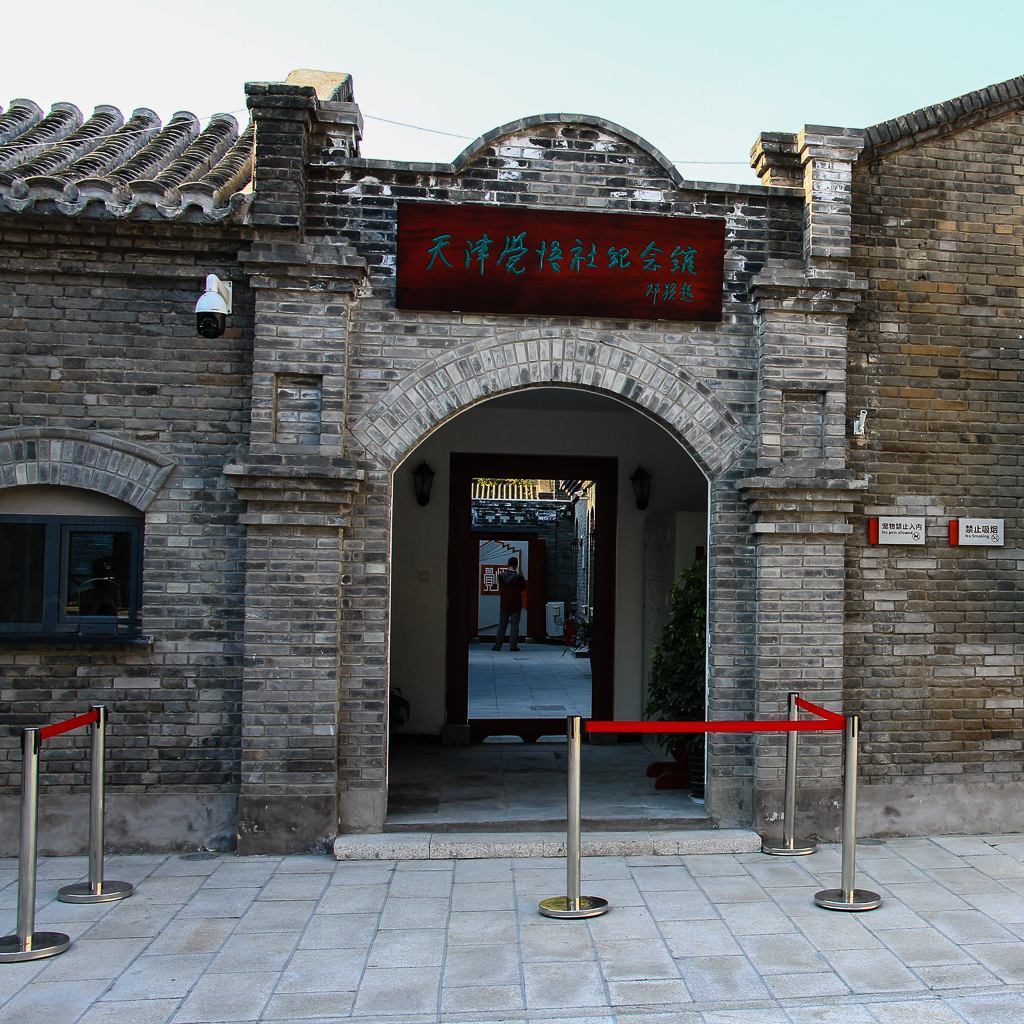
Tianjin Hebei Juewushe Jiuzhi.
3. Modern Twist at Juewu Cafe
Located near the memorial site, Juewu Cafe not only offers a cozy atmosphere but also a menu that blends contemporary culinary trends with local ingredients. Enjoy a variety of coffee blends, teas, and freshly made pastries while soaking in the ambiance inspired by the historical significance of the Juewushe.
Accommodation Suggestions
1. Tianjin Grand Hotel
A short distance from the Juewushe Jiuzhi, the Tianjin Grand Hotel offers modern amenities and comfortable rooms. With easy access to public transportation, it serves as a great base for exploring the city. The hotel also features an on-site restaurant and gym facilities, ensuring a pleasant stay.
2. Holiday Inn Tianjin Riverside
For travelers looking for a blend of comfort and convenience, the Holiday Inn Tianjin Riverside is an excellent choice. Situated near the Haihe River, it provides beautiful views and easy access to local attractions. The hotel includes a fitness center, business services, and a restaurant serving both local and international cuisine.
3. Home Inn Tianjin Nankai District
If you’re on a budget, consider Home Inn in the Nankai District. This hotel offers clean, simple accommodations at affordable prices. Its proximity to public transport makes it easy to explore Tianjin, and the friendly staff can assist with local recommendations.
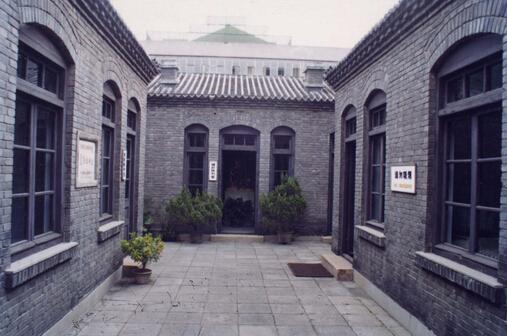
Tianjin Hebei Juewushe Jiuzhi.
Conclusion
Whether you’re enjoying a quick bite from a street vendor or settling in for a meal at a local restaurant, Tianjin’s rich culinary landscape will enhance your visit to the Juewushe Jiuzhi. Coupled with comfortable accommodations, your exploration of this historic site will be both enriching and enjoyable.
Frequently Asked Questions
Frequently Asked Questions
1. What is Tianjin Hebei Juewushe Jiuzhi?
Tianjin Hebei Juewushe Jiuzhi, also known as the Juewushe Memorial Museum, is a historical site located in the Hebei District of Tianjin. It was the headquarters of the Juewushe, a revolutionary youth organization founded during the May Fourth Movement in 1919, led by prominent figures such as Zhou Enlai and Deng Yingchao.
2. What are the opening hours of the museum?
The museum is open daily from 9:00 AM to 4:30 PM. Visitors are encouraged to plan their visit within these hours to fully enjoy the exhibits.
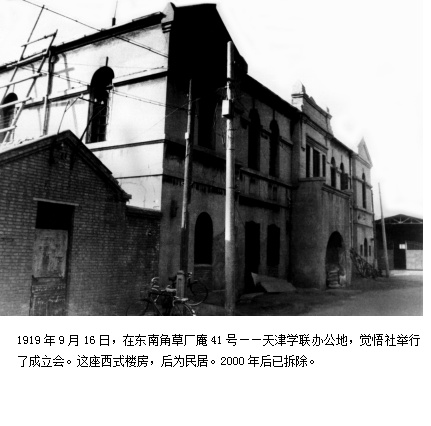
Tianjin Hebei Juewushe Jiuzhi.
3. Is there an entry fee for the museum?
Admission to the Juewushe Memorial Museum is free of charge, making it accessible for all visitors interested in learning about its historical significance.
4. How can I get to the museum using public transport?
You can reach the museum by taking several bus routes. The most convenient options include bus lines 4, 34, 632, and 607, with the nearest stops being Hebei Sanmalu and Rifa Li. Plan to walk approximately 480 meters from the bus stop to the museum entrance.
5. What can I expect to see inside the museum?
The museum consists of two main exhibition areas: a restored display that re-creates the historical environment of the original Juewushe site, showcasing tools, educational materials, and historical artifacts. The auxiliary exhibit features extensive historical documents, photographs, sculptures, and models that depict the activities and impact of the Juewushe.
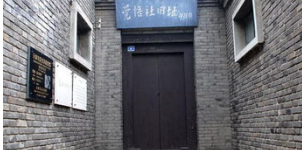
Tianjin Hebei Juewushe Jiuzhi.
6. Is the museum suitable for children and families?
Yes, the museum is suitable for visitors of all ages. Families can benefit from educational experiences that highlight China’s revolutionary history and the contributions of youth in social movements.
7. Are there any special events or exhibits held at the museum?
The museum may host special events and temporary exhibits from time to time. It is advisable to check the museum’s official announcements or website for information on upcoming events during your visit.
8. What should I know before visiting the museum?
Before your visit, it’s recommended to check the weather forecast, as some outdoor activities may be affected by adverse weather conditions. Additionally, be respectful of the museum’s artifacts and exhibits while exploring the premises.
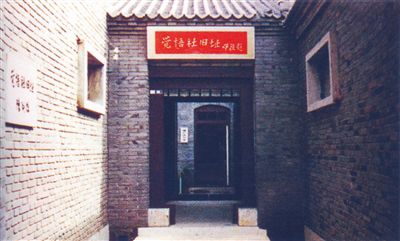
Tianjin Hebei Juewushe Jiuzhi.
Final Thoughts on Your Trip
Visiting the Tianjin Hebei Juewushe Jiuzhi (觉悟社旧址) offers a unique glimpse into a pivotal chapter of China’s revolutionary history. This historic site not only embodies the spirit of the May Fourth Movement but also serves as a testament to the courage and determination of young activists like Zhou Enlai and Deng Yingchao. As you stroll through the restored halls of the former Juewushe, you’ll encounter artifacts that echo the passionate discussions and revolutionary ideals that shaped a generation.
The museum stands as a powerful reminder of the importance of social consciousness and collective action. It inspires visitors not only to reflect on the past but also to engage with the present and future. Whether you are a history enthusiast, a student of social movements, or simply seeking to understand the cultural fabric of Tianjin, the Juewushe Jiuzhi is a must-visit. Embrace the lessons of history, and let the spirit of innovation and progress found here inspire your own journey.
